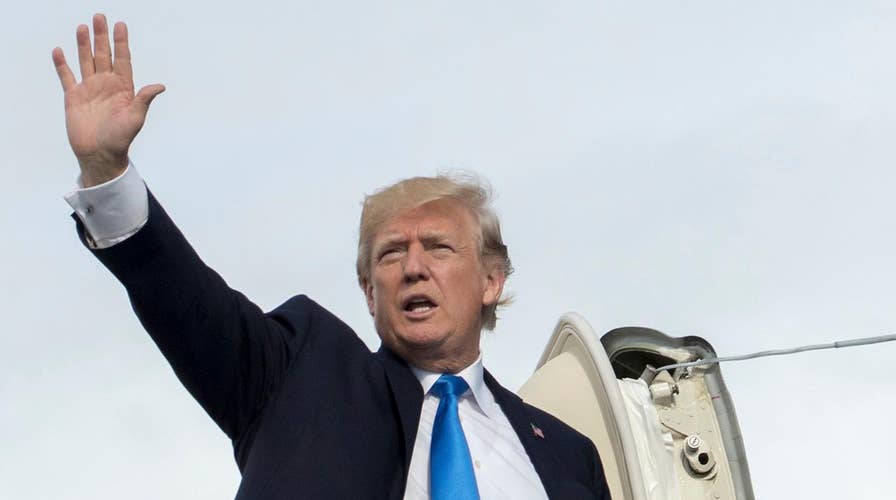Talks now underway in Mexico City between U.S., Canadian and Mexican officials to renegotiate the North American Free Trade Agreement (NAFTA) will have a profound impact on the economies of all three nations. China will be watching closely.
If negotiators can’t reach agreement on key provisions of the 23-year-old trade pact it is in danger of outright termination. NAFTA has dramatically increased trade between the three member nations – from $290 billion in 1993 to $1.1 trillion last year.
Should NAFTA die, eager foreign competitors will be ready to pick up the pieces and welcome even more North American manufacturers to relocate, to lower their costs of doing business.
The Trump administration admirably seeks to bolster U.S. manufacturing, but if it scuttles NAFTA more companies would flee our country, as a curtain of tariffs would fall across North America, raising the cost of doing business. Consumers would also be hit by higher prices caused by tariffs.
The Trump administration admirably seeks to bolster U.S. manufacturing, but if it scuttles NAFTA more companies would flee our country, as a curtain of tariffs would fall across North America, raising the cost of doing business. Consumers would also be hit by higher prices caused by tariffs.
The two industries we represent – automobile manufacturers and America’s freight railroads – are ringing the alarm about what might befall the U.S. economy if the dissolution of NAFTA becomes an unfortunate reality.
The auto industry accounts for more than 7 million jobs in the United States. And freight railroads, which transport automobiles and their parts, support 1.5 million U.S. jobs. Rather than secure new jobs, a continent without NAFTA would threaten the security of many of these jobs.
At issue is a major sticking point in the negotiations over rules governing the country of origin for automobiles. One of the changes sought by the Trump administration is to dramatically increase the amount of content from NAFTA nations in autos from 62.5 percent to 85 percent. A total of 50 percent of the total content would have to come from companies within the United States.
The Trump administration is seeking this change despite the fact that 12.2 million vehicles were produced in the U.S. last year – over 1 million more than were produced in our country in the year before NAFTA went into effect. And vehicles produced in Mexico and Canada already have substantially more U.S. content than those produced outside the NAFTA region.
In 2015, U.S. companies exported over $30 billion in auto parts to Canada and more than $29 billion in U.S. parts to Mexico.
U.S. auto manufacturing is an international endeavor. with a supply chain stretching around the globe. The industry’s competitiveness hinges on its integrated NAFTA supply chain, through which vehicle components cross the Mexican and Canadian border duty-free, most often by freight rail, as many as eight times in the vehicle assembly process.
Even if Mexico and Canada were to agree to the proposed change – although their negotiators promise to reject such a move – the new country-of-origin formula sought by the Trump administration would make it much more difficult for vehicles and parts to move within the U.S., or between Mexico and Canada duty-free.
Experts agree that the dispute over auto parts could well ignite the termination of NAFTA. This would result in a 2.5 percent tariff on imported passenger vehicles produced in Canada and Mexico, amounting to an $850 tax paid by the average American car buyer.
The tariff would incentivize automakers to produce goods outside of North America. It would also cause automobiles produced in Mexico and Canada to be more competitive in more global markets than cars produced in the United States. Under such scenarios, the U.S. would be less able to compete with Asian and European companies.
Ending NAFTA would also likely impose far-reaching, negative effects to U.S. consumers, the auto industry, the freight rail sector and the U.S. manufacturing base. While the aim of NAFTA renegotiation is to boost U.S. manufacturing, we believe it would do just the opposite, particularly for our sectors.
The symbiotic connection between our two important industries – so central to the health of the U.S. economy writ large – demonstrates why the Trump administration must tread thoughtfully and carefully over NAFTA talks. Today’s logistics chain is firmly established and cannot be easily upended.
The administration is correct – NAFTA must be modernized to make the U.S. more competitive globally. But unraveling the competitive advantage of our two core industries and sending more jobs overseas is not the means to achieve such a laudable goal.

